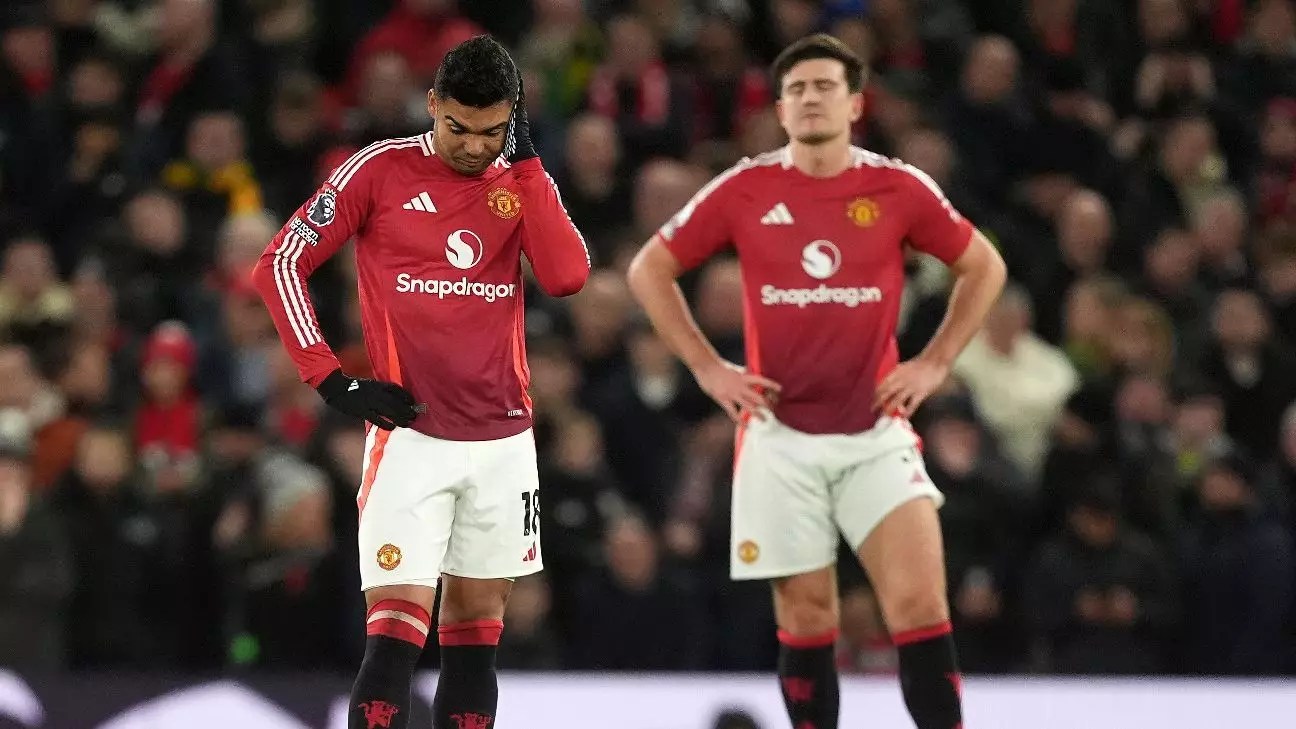The air around Manchester United has been thick with frustration and disillusionment, particularly following their latest defeat to Newcastle United. The loss, which saw the club fall to their fourth consecutive defeat, has prompted fans to voice discontent with both the players and the coaching staff. As the whistle blew at Old Trafford, it felt less like a football match and more like a flame igniting long-bubbling frustrations. The fans’ reactions, ranging from cheers at player substitutions to the cacophony of boos echoing through the stands, paint a grim picture of a club sinking into turmoil.
Head coach Ruben Amorim’s decision to substitute Joshua Zirkzee midway through the first half epitomizes this frustration. Amid a lackluster performance, one where any of the 11 players could have been swapped out, Zirkzee became the scapegoat. The seething response from the crowd, with cheers accompanying his exit, speaks volumes of the unrest within the fanbase. Zirkzee’s substitution, rather than rallying the team to improve, instead symbolized the collective exasperation felt by supporters towards the entire squad.
The current plight of Manchester United is alarming. For the first time since the 1978-79 season, they have lost three consecutive home league matches. This downward spiral places them precariously close to the relegation zone, which would have been unimaginable for a club of United’s stature. As they prepare to enter 2025 in 14th place, questions are rightly raised regarding the team’s direction and ambition. The alarming statistics tell a harrowing story: six losses in their last eight matches, and fans wonder whether relegation is an actual possibility.
Amorim’s candid acknowledgment of the situation suggests a coach who is grappling with the heavy burden of expectations resting on his shoulders. His admission of embarrassment at the current state of affairs speaks to the larger issue at hand—what aspects are to blame: the coach, the players, or perhaps both? It’s a touchy debate, but one that is essential to understand if Manchester United wants to reverse its fortunes.
As the manager navigates through this crisis, Amorim’s reluctance to pin blame on his players is commendable but may be misguided. While it demonstrates a strong leadership style, it’s crucial to balance accountability and encouragement in a high-pressure environment like Old Trafford. With mounting losses and dwindling confidence, it raises the question of whether the tactics employed is suitable for the current squad. Executing a 3-4-3 formation has been frequently critiqued, yet the underlying issues extend beyond mere systems of play.
In the face of ruthless performances, such as the one witnessed against Newcastle, it becomes difficult to dismiss the players’ shortcomings. For example, lapses in concentration, missed tackles, and defensive errors are not merely tactical failures; they reflect a lack of cohesion and belief in their abilities as a unit. Such signs beg deeper scrutiny into the mentality of this Manchester United side. Amorim’s responsibilities as a coach involve tailoring strategies that maximize the strengths of individual players while addressing collective weaknesses; thus a paradigm shift could be warranted.
Hope Amidst Despair
Despite the grim landscape, Amorim maintains a hopeful outlook, insisting that this run of poor form “will not last forever.” However, the schedule ahead does not favor a quick turnaround with a visit to the formidable Liverpool looming. The prospect of facing off against league leaders at Anfield strikes fear into the hearts of fans and players alike. The truth remains that a defeat in such a high-stakes encounter could tighten the noose around Amorim’s neck further, and leaving fans disillusioned even more.
Historically, Manchester United has fluctuated between triumph and adversity, but the gravity of their current season calls for introspection and maybe even revolution. The club must decide whether it’s time for a wholesale change in leadership or a deep introspection of the current squad’s capabilities. The fans undoubtedly deserve better than the disjointed display they have witnessed in recent times.
This turbulence serves as a defining moment—not only for Amorim but also for Manchester United itself as it grapples with the existential questions surrounding its identity. Only time will reveal whether this is merely a dark chapter in the club’s storied history or a call to action for a major overhaul. The urgency to restore glories of yesteryears has never been more pressing at Old Trafford.


Leave a Reply